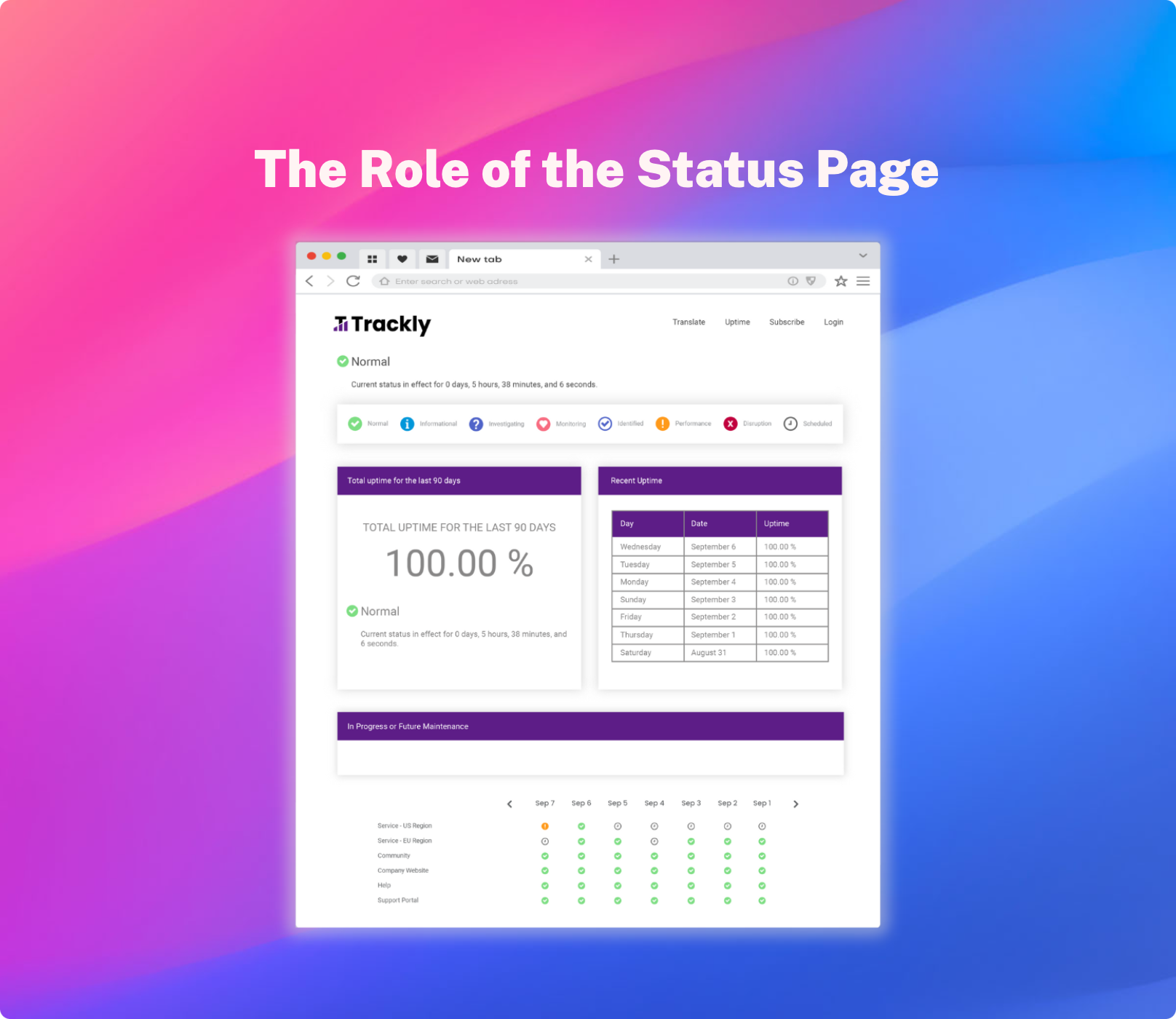APIs are what enable software integrations. It’s what lets Yelp show Bing maps on their site to help you find directions to the restaurant you’re checking out, makes it easy to share whatever you just backed on Kickstarter to your social media networks with just one click, and in many cases allows you to make online purchases via PayPal.
At StatusCast, we use APIs to connect our hosted status page tool with Application Performance Monitoring (APM) solutions (e.g. New Relic) and with communication networks (e.g. Twitter, Slack, SMS/text messaging).
As a result, StatusCast customers only need to write the content of the messages they want their various existing APM alerts to trigger, and those messages will go out to subscribing users across all relevant communication networks automatically when the relevant APM alerts occur.
Why a Hosted Status Page is Necessary If You’re Using APIs
When your software relies upon an integration to provide some element of functionality (I’ll go back to the Bing maps in Yelp example), what happens when that other software goes down?
What if your integration is not as obvious to users as the one between Yelp and Bing?
Chances are, your users are going to get mad at you for your software failing to do what you promised it would- even though the issue neither your fault (the OTHER software broke!) nor your responsibility to fix.
You still have two responsibilities in this situation, and this is where a hosted status page comes in.
First, when there’s an issue with one of the integrations your software relies upon, you need to communicate to your users in a timely fashion. Let them know that due to an issue with [the other software], your software is experiencing limited [what their integration does for your users] functionality – and you will notify them immediately once that situation changes.
In this manner, you’re taking responsibility for letting your users know your software is not working as they expect it to, and establishing that they can count on you to keep them updated once full functionality is restored.
You can do this easily with a hosted status page. Check out this Status Page Integrations video for how to set up an integration between StatusCast and an APM system.
Second, you need to put the current disruption in the bigger context of your history with this software partner. If it seems like they are a relationship worth pursuing, once the issue is resolved, you may want to offer your users an uptime report from your hosted status page that demonstrates despite the recent hiccup, they are a still a reliable, valuable component to your software.
If that uptime report doesn’t look so good, you may want to re-evaluate your relationship with them and begin pursuing partnerships with other vendors who can do the job more reliably – as it is your reputation with your users that’s at stake!






